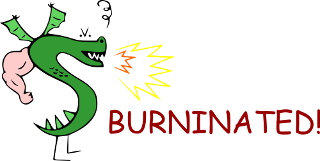write and writing have been burninated.

Thanks to everyone who participated.
Observations/Retag Guidance:
Note that we're burning two tags: writing and write. They have mostly identical question buildups, and currently don't need separate advice. Feel free to edit this answer if that changes, or edit with other observations.
- A number of questions relate to specific classes/functions for writing; examples include streamwriter, fwrite, filewriter, file-writing and console.writeline. We don't need to create additional tags for uncovered APIs, but if they exist, using them may be appropriate.
- The POSIX'
write() function is present in a number of these posts; if we need a tag beyond posix, linux, or another contextually appropriate tag, unistd.h is the better name for a tag. That tag does not currently exist, and it's somewhat undecided whether such a tag is needed in the first place.
- In most cases, however, a simple language tag will suffice.
Progress:
The writing and write tags are in the process of being burninated. You can help out by reviewing the questions with these tags, and...
- editing questions to improve the question and remove these tags (retag-only edits are best left to users with full edit privileges; i.e. > 2k reputation),
- flagging/voting to close questions that are duplicates/off-topic/unclear/too broad/opinion-based (users with < 3k reputation can help quite a bit by flagging questions for closure, which helps keep the Close Vote Review Queue full),
- filtering for questions with this tag in the Close Vote Queue,
- voting on questions with this tag,
- voting to delete the questions with this tag (after they have been closed, and only if the entire Q&A contains nothing of value). However, keep in mind that at the end of the burnination process all closed questions containing this tag will be deleted semi-automatically. Thus, there's rarely a need to vote to delete these questions.
Here are some quick links to get you started:
Track the progress of burnination
Remember that burnination is a clean-up effort!
Salvage whatever possible by editing and re-tagging.
We don't want to destroy value, so salvaging a post should be your first priority. If a question can be saved, please edit it. Your edit should improve all problems with the question and remove the write and/or writing tags, possibly replacing it with another tag, as described above in "Observations/Retag Guidance". (Edits, specially re-tags, are best left to users with full edit privileges)
Unsalvageable questions should just be flagged/voted for closure. They don't need to be retagged.
If the question is not appropriate for this site, then don't worry about removing the write and/or writing tags—just flag/vote to close the question.
At the end of the burnination process, all questions which still have the write and/or writing tags should have been closed. These will be mass-deleted, which will remove these tags from the system automatically, with minimal disruption.
Ask for help if you need it.
If you have any questions about specific questions you come across, or the process in general, please feel free to leave a comment on this post. You can also drop into the SOCVR chat room for real-time advice and discussion.

readtag, there shouldn't be awritetag either.[write]has 288 questions,[writing]352 and[read-write]564. IMO these 3 tags are meta-tags and don't really help specifying a question. So they should be trashed..writeintowritingand then burn just one?writesyscall?write(APIs usually have dozens of these with slightly different names) that give direct hits in search, then creating a language specific tag for the function is the best choice e.g.:write-unixwrite.c+write, butwriteis too general an operation and ends up working like a magnet for off-topic and erroneous tagging (anything vaguely about writing is likely to be tagged withwrite- seewritingthat's also being considered for burnination). In such cases separating it is better seevariadic-macrosfor an example.write(2)system call? I'd guess most of what makes it interesting is what kind of file you're writing to, most of which would also apply topwrite(2)(on seekable files) orwritev(2)(gather IO). OTOH, it could be hard to search for questions about using it if "write" just appears in the text, since it's a common English word that appears in 2.5 million SO posts, very few of them about Linux / POSIXwrite.